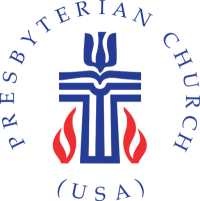This June, in addition to a self-study, ACSWP is bringing six action items before the General Assembly. Below is a description of each, as well as a link to read it online at www.pc-biz.org.
1. Honest Patriotism. How can anyone find the Good News among a cloud of fake news? In his 2005 book, Donald Shriver, Jr. defined honest patriotism as “loving a country enough to remember its misdeeds”. This resolution re-affirms the Presbyterian commitment to “active civic engagement, responsible citizenship, and prophetic witness” and presents ways to prevent media misdeeds and the over-concentration of media influence (arguing ethically for net-neutrality for example) while emphasizing that the church itself is called to be truthful rather than neutral or silent.
2. Gospel from St. Louis. In 2016, the 22nd General Assembly pledged to “Seek Christ’s presence in each of the cities where we meet” This year’s General Assembly is being held in St. Louis, and so ACSWP has sought to hear and support the witness of local social justice leaders of faith. Following up on discussions begun at the 2017 Big Tent, in this “Gospel” pastors and laypeople have compiled their insights and testified to the historical and continuing injustices in St. Louis & Ferguson, and to the actions which local interfaith leaders have taken in resisting the idolatrous ideology of “White Supremacy.” The documented stakes of witness in St. Louis, together with ACSWP’s accompanying resolution, lend some tangible guidance for how the 223rd GA might realize the “hands and feet” program of justice and peace.
3. Putting Healing Before Punishment. The “War on Drugs” is not solving the problem of drug-related crime, and it has resulted in racially discriminatory prison sentencing and mass incarceration. This resolution repudiates the status quo. However, any way forward bears potential risks. While the report favors decriminalization of small amounts of marijuana for persons over 21, it does not accept forms of legalization that would allow for a legal “Big Marijuana” lobby like Big Tobacco or Big Alcohol, nor legal regulation that would license and tax authorized sellers.
ACSWP recognizes that the issue of marijuana regulation faces divergent and powerful trends in this country, and that this report takes a perhaps unpopular middle road. It does emphasize, however, evidence-based regulation for all drugs, and hence a revision of the antiquated 1970 “schedule” that wildly overstated dangers and authorized the punitive and often racist “war on drugs.”
In contrast with the harsh treatment of marijuana, opioids have been historically overprescribed—a major cause of the present opioid crisis. Recognizing that harsh criminalization would lead to unintended consequences—such as increased heroin use in place of current prescription drugs—the report advocates for empowering opioid laws that emphasize harm reduction programs (such as needle exchanges).
4. Precautionary Principle: Managing New Technologies for a Sustainable Future. The precautionary principle is an approach to technology that prioritizes safety and demands evidence-based regulation. This report originated in an overture that presented three concerns in particular: GMO’s (genetically modified organisms, such as grain seeds), nano-technologies (the report focuses on nano-chemicals), and the interaction of toxins in a rapidly changing environment. The report address these in depth and treats several other new technologies more briefly. Presbyterian scientists should help in the ethical analyses of the many future technologies that are sure to come.
Climate change provides a very grim backdrop to the original concerns. Some proposals, called “geo-engineering,” would try massive-scale reversals of global warming. Because of their unique scope, these attempts cannot possibly be tested for adverse side effects; however, climate change itself is a prime example of the unintended consequence of under-regulated technology. The precautionary principle puts more burden of proof on those bringing new technologies, before we reap their benefits.
5. Global Order & National Purpose. This resolution affirms the church’s traditional support for just and cooperative relations among nations, and calls for an ecumenical study that would provide a framework for consultations on human rights, the rule of law, paths to development, resistance of corruption, non-military foreign aid, security threats, climate change refugees, etc. The mainline churches were among the chief original backers of the Universal Declaration of Human Rights and of the United Nations. However, these institutions can do little to curb a United States that is breaking its own norms. At this time, the Advisory Committee judges that, as international tensions rise, there is a need for our church and others to put forward faithful values and voices in the service of a peaceful global order. This resolution invites public discussion with thoughtful Christians in the foreign service, the military, and non-governmental organizations, as well as partners from overseas.
6. Religious Freedom Without Discrimination. This resolution affirms the positions on church/state relations found in the 1988 Policy, “God Alone is Lord of Conscience,” and opposes the use of religious freedom claims by individuals and companies to discriminate against LGBTQ+ people and others. The PCUSA supports the “free exercise” of religious liberty and has been wary of state (taxpayer) support for religious schools, which often include religious requirements taught from a specific perspective. This same wariness extends now to efforts to enshrine bigoted forms of Christianity into law and to deny a range of reproductive health services in women’s health insurance—an imposition on their practical choices and an infringement on their freedom of conscience.
***
The Advisory Committee on Social Witness Policy (ACSWP) serves the prophetic calling of the whole Presbyterian Church (U.S.A.) by providing the General Assembly with careful studies of pressing moral challenges, media for discussion and discernment of Christian responsibilities, and policy recommendations for faithful action. (www.presbyterianmission.org/ACSWP).




Unbound Social